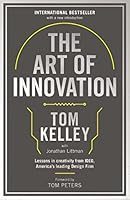Masterful writing touches people deeply because it speaks to who we are - our identity, values, fears, dreams, and our approach to science. And so I find myself in awe of organizations that dedicate themselves to the written word. That give people permission to write fearlessly as a means of engaging with the world. When done right, writing shapes... See more



